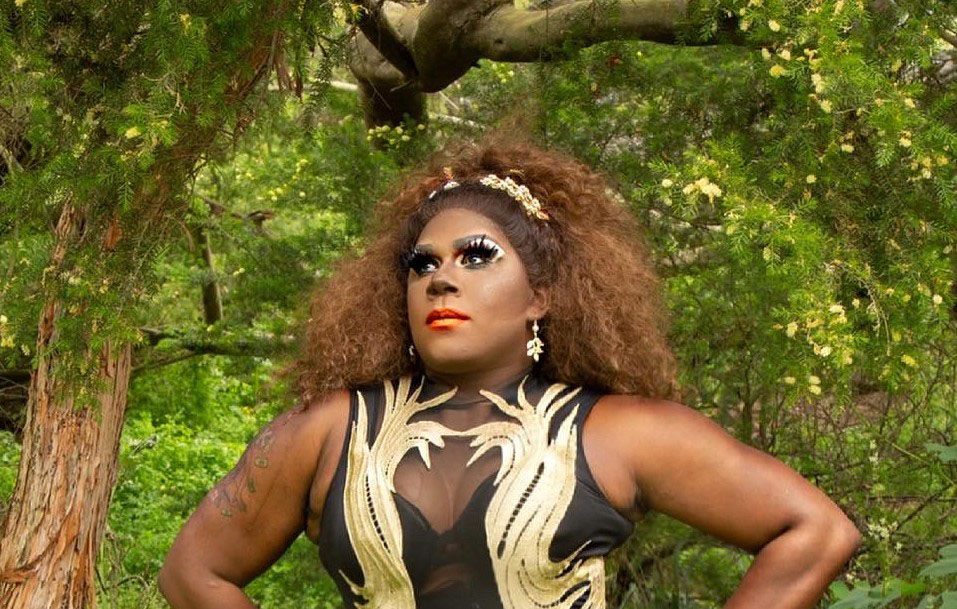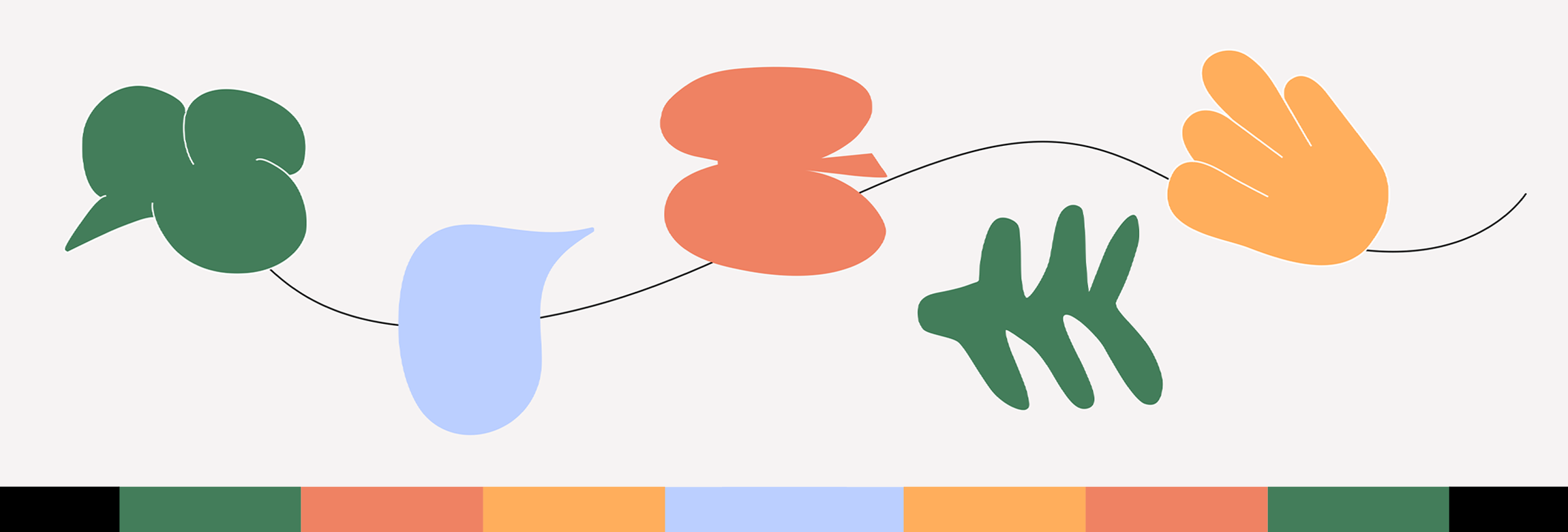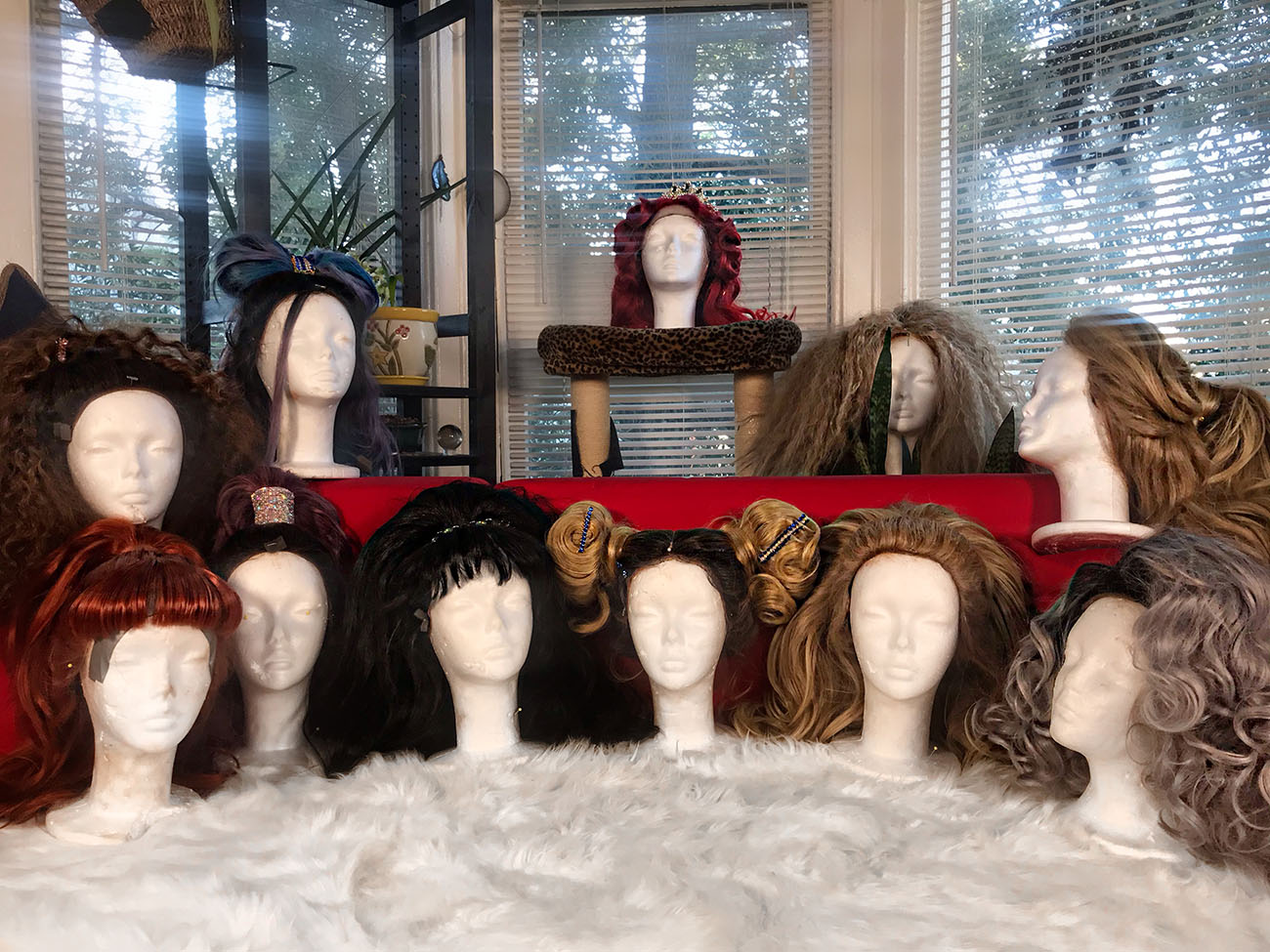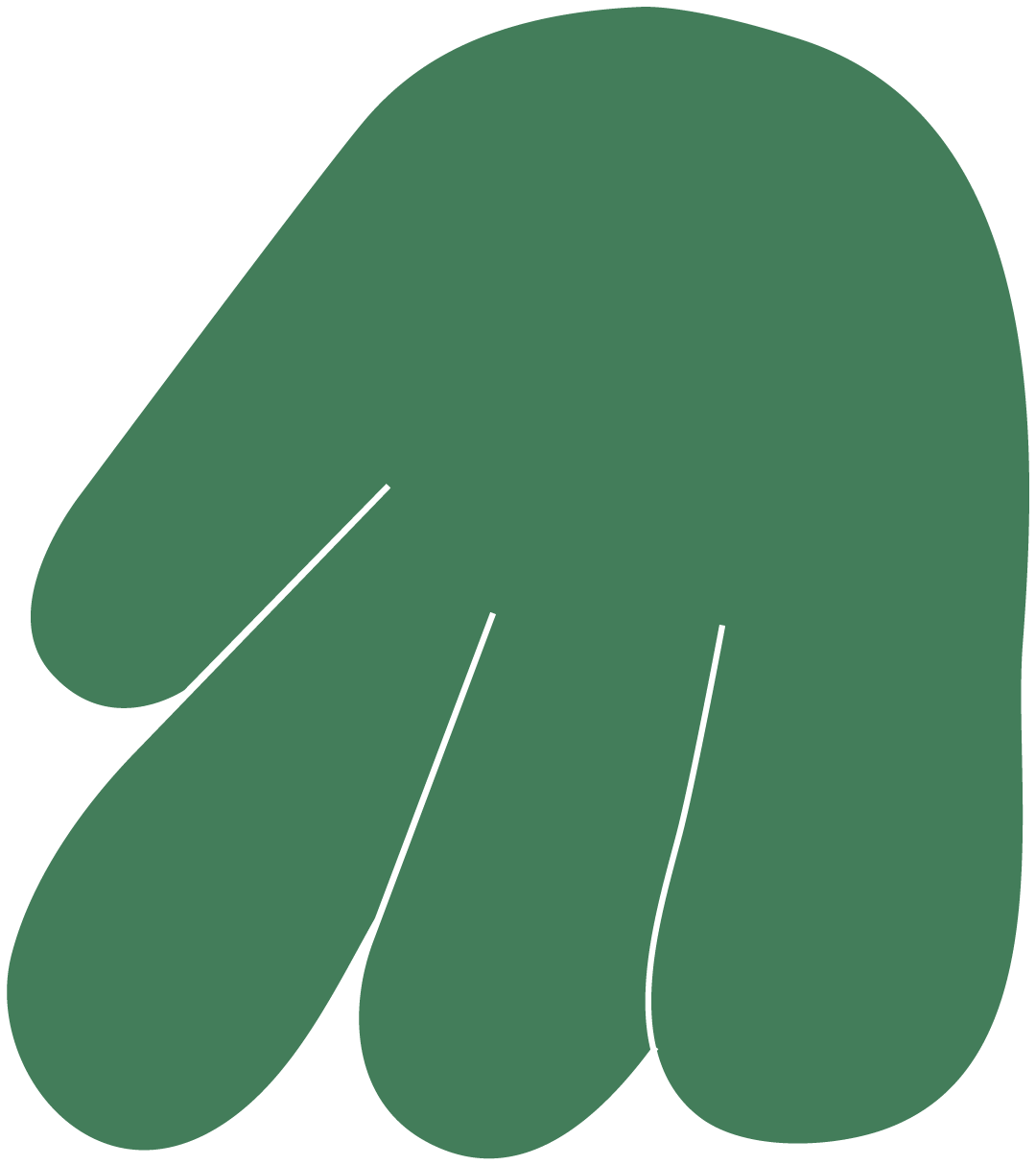
NICKI
JIZZ
How can we create social spaces that reflect and celebrate our many identities? What if we understood how access benefits everyone?
Photograph by Marcel Pardo Ariza
Watch our conversation with Nicki Jizz and read along below.
Video Transcript
Nicki Jizz, voted Best Drag Queen of the Bay Area in 2020, founded Reparations: an all Black Drag Show in June of 2020. In the monthly online show, Nicki creates a vibrant online space centered around beautiful, hilarious, thought-provoking and sensual performances by Black performers.
Honestly, I don't know what I would do if I wasn't still able to do drag and see other performers and still be able to make content. I love doing this and I love making people happy and entertaining people.
“This is like a beautiful moment for you to relax and feel celebrated.”
Joining a Movement
With everything that was happening in the summer after George Floyd, after Breonna Taylor, I was really emotional and really scared. And that was a different feeling than I've ever really felt. I felt those emotions at times, but at one point, when you're in shelter-in-place, you're at home and you can't distract yourself from what's going on in the world, you have to face it. So it was one of those things: you are having to deal with it.
With the uprising and the Black Lives Matter protests, you're seeing it on your screens, you're seeing Black people being murdered on your screens every day. I didn't feel right doing a show that wasn't about what's happening right now. There's real stuff happening in this world.
I still wanted to do it [drag] — but I was like, how can I do this and be respectful and also bring light to what I'm feeling right now, what everyone is feeling who looks like myself? I wanted to do a show that was like, "This is for you, I know how you feel," and I wanted to do something where there's always the Black girl in the show and forever.
I had never really been an activist, or really went out protesting and did things like that. That was never something I really did. And I wanted to contribute in some kind of way. I didn't really feel safe and comfortable being out in the streets because of being in a pandemic.
So I wanted to do Reparations, and I wanted to do a show where it was an all-Black cast, with Black DJs, Black performers, burlesque, drag, queens, kings, anything. If you were a Black entertainer and wanted to showcase your talent I wanted to give a platform for that.

Reparations + Drag
It's an outlet for others. Drag is an outlet, whether it be for the performer or the audience. It's a way for you to let go and enjoy the art that is what we do. If I can do that every day for the rest of my life, I'm happy with that. It keeps me sane, as much as getting all this together drives me crazy sometimes, it keeps me sane at the same time.
So I think me bringing together my queerness and the idea of reparations is something that — as a queer, Black, cis man — doing something like that is very important to me. I deal with discrimination, whether it be I'm queer or Black or both. The idea of having reparations, of being paid back restoration for all the struggles that our ancestors have gone through, that we continue to go through, and especially as queer people we go through that as well — I think that just adds double, you know, just saying. I mean, I'll take double pay for that.
It's rough some days, but I think people have to fight for what they want and speak up and that's what I'm doing.
I have finally had a passion with this. I have people who message me telling me that Reparations is their favorite show, that it means so much to them, that they’re glad that there are shows like this because there's not many shows like this. A lot of performers, if you're in drag and if you're Black or POC [a person of color], you are tokenized, you only get asked to do shows when it's Nicki Minaj night or it's Beyonce night or if you need to do Lady Marmalade and you need a Lil’ Kim, you hit me up. I don't wanna always be that person.
It felt really beautiful that — I don't know — Black content was actually like being seen and cared about. It's the only way that they feel free or comfortable with themselves. Drag helped me find who I was. So I understand that, like I can't imagine my life without it right now. I used to think like, "Oh, a drag show is nothing but it's just like another gig. It's another paycheck or I'm out having fun." But it really means so much more to people especially now because this is our way — it's my way — of connecting with my friends and people who live in middle America or people who live down the street who have never seen this now have these people.
So like I do have a responsibility to my community and to myself to be honest and be truthful.
Many Wigs
We've worn many hats, many wigs, but now we wear many hats as well. Like before we were makeup artists, seamstresses; we made our own clothes, our wigs, things like that. But now we have to do our own lighting, we edit our own videos. I do it all. I could win an Oscar — who knows, maybe. There should be a Drag Oscars! That'd be awesome! It's a lot of work that goes into this. It's so much work that I’ve never done before.
This is what we do, this is our lives. Whether you're a DJ or burlesque or a drag queen, or you do all of it, this is our lives and right now our lives have been put on hold in a sense. It gets so more important now for us to have things like this because this shows real community, it doesn't rely on being in the clubs or being around others. I do it because I love it.

Connection During the Panoramic Panasonic Pepperoni Pizza Roll Pandemic
We're in a Panda Express. We're in a Panoramic Panasonic Pepperoni Pizza Roll Pandemic right now. You can't be with your friends in the way that you used to. I was at the bar, maybe three to four times a week, whether performing [or not]. I feel like it's really beautiful that we at least still can communicate and connect with each other, even if it's through the internet I'm still able to catch up on my friends and see them perform and see them work on their craft you know. There's some friends I haven't seen since this started, but I watch their shows every time and I’ve seen their makeup grow. I know what's going on 'cause I'm in their shows and I'm in their chat. I tune in to see my friends and they tune in to watch my shows. It's a way for us to still be connected because it's all we have.
In the queer community, some people don't have their given family, their biological families; not everyone's on good terms with their families. Your friends, your chosen family are what you have. If you wanna stay safe and healthy, you have to stay away from people, and at least with this, you can still be with your chosen family. It's not the same. It's nowhere near it. I miss seeing people's faces. I miss hugging my friends, hugging fans, taking pictures with people. I miss snatching money out of people's hands — I really miss that! I really do.
If we just take this one, two mask at a time, we can do this and we can be back with our community. I think it'll make us stronger as a community because especially the queer community, we've endured so much over time. Especially queer POCs, we've definitely endured a lot. So I feel like if anything we're just gonna be stronger out of this and come out of this braver and tougher and more thankful after this.I love that we have, now I have this platform and this fanbase that is bigger than, the seven-by-seven miles of San Francisco. This is like something that's greater than myself.
Care still life, by Nicki Jizz
Lessons in Accessibility
I think one of the good things about digital drag once we moved it, once drag moved to the internet, is that it became accessible for everyone. Drag became something that was attainable from everyone who had internet. It didn't matter if you had the money to pay a cover or if you're over 21 to get into the bar. Everyone was able to attend a drag show now.
There were some things I never really paid attention to before. It made it accessible not [just] in that sense — like financially — but also there are people who are disabled, who can't go out to clubs because maybe the bar doesn't have the right access for them to get in there or it's not sanitized or healthy enough for them, because some people can't go out because their immune systems are so low and have to stay at home.
But now they're able to be a part of this. They're able to be a part of it. It sucks that it took a pandemic for people to make everything accessible for others who can't have that access. But now everything is accessible for everyone because it affects everyone; but before no one really cared, and that's something that I am glad that we are learning that we can do with Twitch and online stuff 'cause we can make this accessible. And when things open up I'm gonna continue to stream Reparations and some capacity, like I will still have it streamed at the club if I'm doing it there. I will still want my fans and friends in Utah, Japan — wherever they may be — I want them still to be able to be a part of the show that they really love.
Just because we went to the club doesn't mean that they still can't be a part of it.



